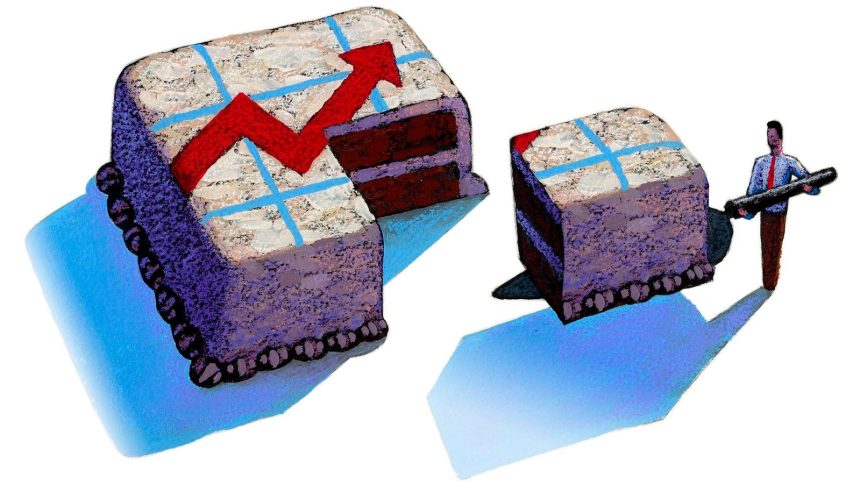Some short-term Treasury ETFs beat money-market funds. Here’s a sortable list.
Brokerage firms are short-changing customers with their money-market funds, says one angry commentator.
Gosh. These brokers deliver a lot of terrific service for free (custody, trading, research). How are they supposed to pay for it all?
Instead of grousing, do this: Accept the fact that the brokerage has to cover its costs, but arrange your affairs so that some other customer picks them up. This survey shows you how to side-step expensive money funds.
The path to low-cost portfolio management has two elements. First is to set up your finances so that the cash in your transaction accounts, where you can’t avoid high management fees, is kept to a minimum. The second is to shuttle excess cash in and out of some other safe, liquid investment, one with a low management fee.
The transaction accounts, for paying bills, receiving direct deposits and settling securities trades, might have $10,000 most of the time and more than that only when there’s a need. The low-fee account might have $100,000 most of the time.
If you do business at Vanguard, that low-fee account could be a Vanguard mutual fund. Anywhere else, you have to be creative, because the money market fund on offer is going to be expensive. Instead of using a Schwab or Fidelity money fund for the $100,000, buy shares in an exchange-traded fund that behaves like a money fund but has a much lower expense ratio.
You have to keep an eye on the balance in the transaction account. When it needs feeding, sell some of the ETF shares (or Vanguard fund shares) a day ahead. When the trade settles the following day, move cash into the transaction account.
At some institutions you’ll be juggling three pots of money: a brokerage account where you hold the ETFs and other shares; a “settlement fund” that handles proceeds of stock sales and payments for shares bought, and a “cash management” account that does your everyday banking.
It’s a shame that you have to juggle at all, but the brokers evidently hope that you won’t have the patience for the transfers and so will leave idle cash in places where they can help themselves to a chunk of the interest. If you are inattentive, you will have too much in a settlement account with a disappointing yield or too much in a cash management account with a terrible yield.
Not even Vanguard is above such mischief. It sells low-cost money funds, but the one you want most if you live in a high-tax state, Vanguard Treasury Money Market, cannot be used as your settlement fund for securities trades. (Why is it in Vanguard’s interest to force you to pay state income tax? I’m waiting for an answer from the company.) Vanguard’s cash management account has a 3.65% yield, which, at a time when Treasury bills yield 4.35%, is equivalent to a money market fund with a very stiff management fee.
Let’s assume you have wised up to moving cash into the brokerage account and want to deploy it. Where are the best deals?
Here’s what Vanguard has to offer in low-cost money-market mutual funds:
For most Vanguard investors, the Treasury fund is the best choice, although the three funds with municipal paper might be useful to taxpayers in the highest federal bracket. Muni funds, it should be noted, have very volatile yields. A month ago they were paying a percentage point more.
Everyone not banking at Vanguard needs to use an ETF to hold large cash balances. Here are the best ones:
You can get in and out of a Vanguard mutual fund with no sales fee. In an ETF you’re going to get hit with a bid/ask spread of a penny or two a share. Except over a short holding period, the trading cost is likely to be less consequential than the management fee.
ETFs are a tiny bit riskier than money funds, since shifts in the yield curve can move their prices. This is a fair bet for you: Rate changes are as likely to make you a few extra cents a share as to lose you money. If the risk bothers you, sort the table on the duration column and select a very short-term portfolio.
Now that you have optimized the yield from cash, ponder this question: Do you maybe have too much of it? I see three fallacies that lead savers to make this mistake.
Fallacy #1: The bucket strategy.
This one, oh so popular with financial planners, goes like this: Once you are retired, you need to have two years of spending in a cash bucket. That way, they tell you, you will not be forced to sell stocks at an inopportune time.
To which I respond: Great. Now tell me when the opportune times to sell stocks will occur.
Fallacy #2: The rainy-day kitty.
This is the advice given to younger people. Put six months of spending into a bank account to cover emergencies. You could get laid off.
I agree that a reserve fund, ideally outside your 401(k), is a great idea. But it doesn’t have to be in cash equivalents. It could be invested in stocks and bonds. Their liquidity is high. You get next-day settlement.
Instead of six months of spending in a CD, set aside 12 months of spending in ETFs. That gives you more protection and a better shot at living well later.
Fallacy #3: The dry-powder notion.
Instead of putting 100% of your stock money in stocks, you invest 80%, leaving money to deploy after a crash.
This might work for Warren Buffett, who’s sitting on a lot of cash at Berkshire Hathaway. But how confident are you that you can identify a market low? Did you buy stock in March 2009, during the financial crisis? Did you buy in March 2020, in the pandemic?
If you didn’t, maybe it’s time to give up on the idea you can time the market.
MORE FROM FORBES
Read the full article here
















